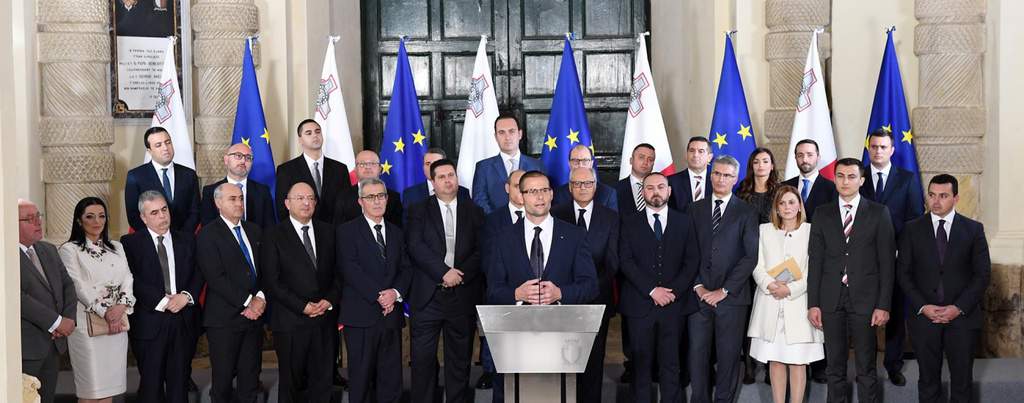Every country has the government it deserves
– Joseph de Maistre

Uganda is well-known for the grand-scale theft of public funds corruption involving public officials at all levels of society as well as widespread political patronage systems. Elite corruption in Uganda is through the benefaction system which has been aggravated by foreign aid. Aid has been providing the government with large amounts of resources that contribute to the corrupt practices going on in the country. One of the more recent forms of corruption is through public procurement because of the lack of transparency with transactions that happen within the government.
Yemen is the most corrupt country in the Gulf region. It has become the poorest country in the Middle East, rapidly dwindling reserves of oil and water. In Yemen, corruption, poverty and inequality are systemic and according to Carnegie Endowment for International Peace corrupt activity is so entrenched and pervasive that many citizens feel powerless.
In Zimbabwe, corruption has become endemic within its political, private and civil sectors. The country ranks joint 160th out of 180 countries in the 2016 Transparency International Corruption Perceptions Index.
Wednesday was a dark day for Malta. The Financial Action Task Force (FATF) voted for Malta to be put in the grey list which includes the countries mentioned above. Yesterday afternoon, members of a global anti-money laundering watchdog have voted to add Malta to its grey list. When the FATF places a country under increased monitoring, it means the country has to resolve swiftly the identified strategic deficiencies within agreed timeframes and is subject to increased monitoring. The decision taken by the FATF is sure to have serious negative repercussions on the country’s economy.
The FATF has a third list, the so-called black list. Currently there are only two countries on the black list, North Korea and Iran.
For people to understand the situation it should be clear to them that MoneyVal was instituted in 1997 while the FATF was established in 1989. Up to a few years ago under a Nationalist administration, nobody had ever heard these names. But since Joseph Muscat was elected into power in 2013 the two institutions have become as widespread in people’s awareness as FIFA.
Before the 2017 elections the Maltese electorate already knew about the institutionalised corruption within the Muscat government. Daphne Caruana Galizia had been writing about and exposing corruption for years on end. She exposed grand scale corruption within a few weeks of Joseph Muscat taking power four years before. Instead of taking action against corruption, the Labour government launched a campaign to demonise her. Daphne was killed for her efforts to save Malta from the greedy hands of Joseph Muscat and his ilk.
Simon Busuttil had managed to bring corruption on the political agenda and people slowly at first and in thousands later believed him and they were ready to change. But many more others were happy with the situation. The building industry was a success and the speculators were afraid of losing their golden goose. And people working in the sector were convinced that their jobs were at risk if the Nationalist Party was elected to power. And the people re-elected the most corrupt political person ever to administer Malta once again. This time his government lasted for only three years as he and many of his cronies were made to resign by civil society who took to the streets and brought his downfall in disgrace.
Now Malta, that is you and me and our neighbours have to face the consequences of Joseph Muscat’s legacy, while the ex-kink enjoys his ill gotten fortunes.
There is no doubt Labour will try to shift the blame to the PN and on the traitors at the European Parliament in Brussels. Expect trolls like Glenn Bedingfield, Tony Zarb, Manwel Micallef, Manwel Cuschieri, Karl Stagno Navarra, Robert Musumeci, and Andy Ellul to open a massive campaign to shift the blame and try to hypnotise the people out there that the government did everything that it was asked for by the European Commission, the Venice Commission, MoneyVal and GRECO.
They will tell us that the FATF voted against Malta because they are envious of the island’s success story. They will not mention Electrogas, Montenegro, Egrant, Hearnville and Tillgate, Vitals, Panama Papers, the kitchen cabinet, the execution of a journalist, the “mexxi, mexxi, mexxi”, the sitting minister who allegedly took part in a bank heist, the money laundering, Pilatus Bank, the Golden Passport and kickbacks, ministers found guilty by the Courts of breaching the constitution and ministers being investigated by a magistrate.
No doubt Robert Abela will tell us that they did legislate on good governance and the government did all it could to fight corruption. But can you believe him? Can you trust him? Can you trust his cabinet? Abela needs to move away from rhetoric and into action.
Thank you corrupt Joseph Muscat for the legacy you left us.